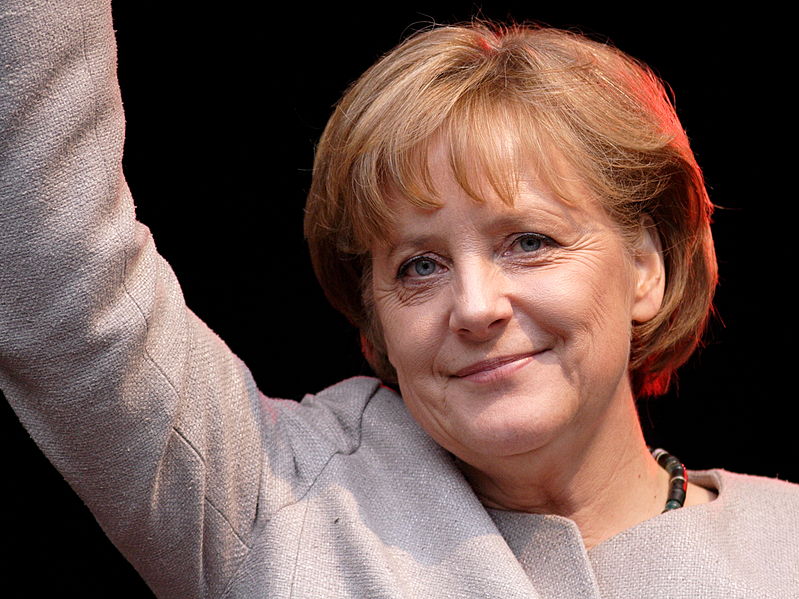Coronavirus has encroached not only on public health but also on the global economy, as well as on some of the most fundamental practices of modern society. For leaders, there hasn’t been a handbook on ‘how to lead in a time of pandemic’, however, it’s undeniable that some have responded better than others. A small number of world leaders are commanding respect with their purpose, providing comfort to their communities and inspiring other countries with their results.
What’s interesting is that all of those leaders happen to be women. Jacinda Ardern, Angela Merkel, Nicola Sturgeon, Sanna Marin, Katrín Jakobsdóttir and Tsai Ing-wen have all shown that female leaders seem to have been noticeably successful in their countries’ fight against coronavirus. New Zealand’s Prime Minister was one of the first to announce a COVID-free country (although the number of cases in the country is on the rise again at the time of writing). Germany, led by Angela Merkel, has had a far lower death rate than countries like the UK, Italy and Spain. Despite the high number of COVID-related deaths in Scotland, their number has still been significantly lower than deaths in England, and 82% of Scots[1] thought that their First Minister Nicola Sturgeon was handling the pandemic well. Finland, with its Prime Minister Sanna Marin, has recorded fewer than 10% as many deaths as neighbouring Sweden, whilst Icelandic Prime Minister Katrín Jakobsdóttir has been offering free testing to all citizens. Despite the lack of a full national lockdown, Taiwan’s President Tsai Ing-wen has demonstrated one of the most successful efforts in the world at containing the coronavirus through using testing, contact tracing and isolation measures to control infections.
And whilst drawing conclusions about female leaders based on the way a group of a few exceptional individuals have dealt with the current crisis is something we should refrain from, it does open up a larger discussion around women’s capabilities of dealing with a crisis, begging the question: “Are women better leaders?”.
In today’s world, the leaders who seem caring and compassionate are the leaders our modern society tends to trust.
A report by Peakon[2] has found that at women-led organisations, employees demonstrate stronger belief in the strategy, the communication is more effective, and the mission more clearly defined, in turn leading to a greater belief in the company’s product or service. The same, to some extent, could potentially be applied to politics too. Most Scottish people adore their First Prime Minister Nicola Sturgeon, they support her fight for an independent Scotland and they certainly seem more united and patriotic than England for example.
But what makes female leaders so likeable and successful in what they do, in addition to the apparent effective crisis management they have shown in a time of an unprecedented crisis?
Traditionally, the list of “feminine” traits of leadership include empathy and emotional intelligence. Generally, it seems like in today’s world, the leaders who seem caring and compassionate are the leaders our modern society tends to trust. Gone are the days where being authoritarian, unemotional and impersonal – all seen as traditionally “masculine” characteristics – will make leaders, be it male or female, more likeable. The tide is certainly turning and even male leaders, like Barack Obama and Canada’s Justin Trudeau, are leaders who are not afraid to show emotions, be more authentic and show that they care for others. What’s more, all these “feminine” characteristics seem to have been particularly valuable during the current health and social welfare crisis.
But while this is an interesting perspective to observe good leadership from, nothing in life is ever black or white. Men like Obama and Trudeau can be empathetic and warm, while women like Margaret Thatcher can be assertive and cold.
The political leaders of countries like USA, Brazil, Russia, UK, Italy, Spain and France have all been criticised over the ways they’ve responded to the pandemic and funnily enough, all those leaders happen to be men. When discussing this with Wendy Rose, an executive and leadership coach and a specialist in working with CEOs, we both concluded that the countries that are named and shamed are amongst the largest, most populous and densely packed in the world. Apart from Germany, comparing these countries and their leaders to smaller countries like New Zealand, Finland, Iceland and Taiwan is not fully fair. While these female political leaders have undoubtedly done an outstanding job at fighting the virus in the countries they’re in charge of, there are many other examples of countries whose male leaders have also done an admirable job of navigating COVID-19, including Australia, South Korea, Greece and more.
“In political leadership, as in business leadership, a number of key qualities and traits are growing in recognition as being significant, particularly at the moment”, says Wendy. “These include lack of duplicity, vulnerability, compassion, empathy, emotional competence and accessibility, to name a few.”
Wendy tells me how during her 20 years of coaching CEOs and other senior leaders, she’s met many men who exemplified these qualities and many women who struggled to connect, to show warmth, interest in others, humility or fallibility. She believes that being one gender or the other doesn’t give anyone an automatic buy-in or opt-out when these qualities get dished out - or developed.
“I have three concerns about using a gendered lens to polarise the debate about what makes a good leader”, she explains. “First, it can be used as a reason, or excuse by men or women to act in a certain way or to have expectations that others should. Secondly, by making this an issue of gender, we marginalise those who don’t identify with either ‘end’ of the gender spectrum. And lastly, by getting caught up in an outdated chimera of gender, we forget the more important task of identifying what really makes a successful leader - political or otherwise- and miss the opportunity of encouraging these sorely needed skills in all our leaders.”
Whether the gender of the political leaders discussed in this article plays a role in how they navigate the challenges presented by the global pandemic or not, or in the ways they lead altogether is a difficult question which will have different answers for different people. It is my belief that the traditionally ‘feminine’ traits of leadership, such as empathy, compassion, emotional availability and emotional intelligence are all characteristics our modern society is looking for in those at the helm of our countries. However, these characteristics should be less about the gender of the person wielding them and much more about the characteristics themselves.
[1] https://www.ipsos.com/sites/default/files/ct/news/documents/2020-05/covid-19-for-bbc-scotland-charts-may-2020.pdf [2] https://peakon.com/resources/ebooks/the-strategic-benefits-of-women-in-leadership/











